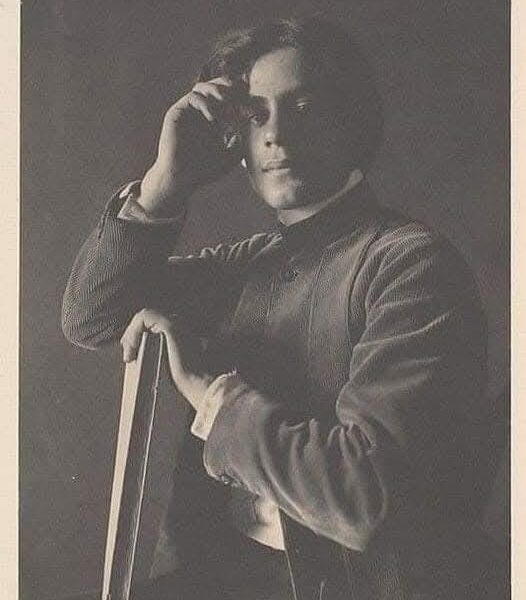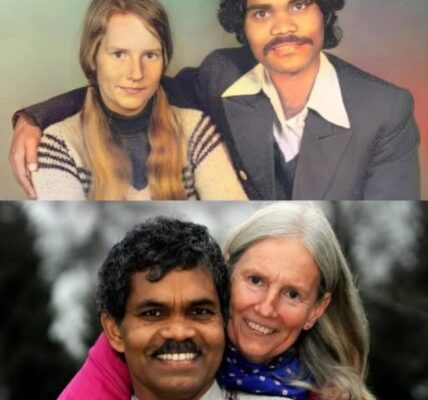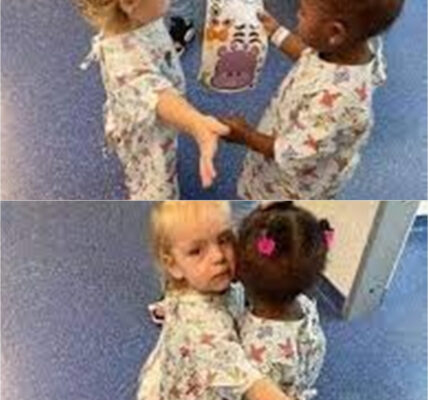Kahlil Gibran: The Boy Called “Filthy” Who Became One of the World’s Most Beloved Poets.

He was a boy with dark skin and broken English.
To some, that’s all they saw.
They called him “filthy,” not because he was dirty, but because he was different. They mocked the way he spoke, the way he dressed, the way his words fell awkwardly in a language he hadn’t yet learned. In school, he was placed in a special class for immigrants—an invisible corner where America often places the unfamiliar.
But some saw more.
A few teachers noticed something extraordinary in him. Not in his grammar or his spelling, but in the way he drew, in the quiet intensity with which he observed the world. He couldn’t yet say what he felt, but his pencil could. His silence wasn’t empty—it was watching, feeling, waiting.
He was born on January 6, 1883, in what is now modern-day Lebanon, into poverty and a world teetering between tradition and unrest. His mother, brave and determined, gathered what little strength and hope she had and brought him, his two younger sisters, and his half-brother across the sea to America—seeking a life where they might have a chance.

They settled in Boston’s South End, in one of the largest Syrian-Lebanese communities in the country at the time. But life in this new world was not easy. Poverty followed them. Tragedy found them.
He would lose a sister and his half-brother to tuberculosis. His mother, his pillar, would die of cancer.
He was just a boy. But one carrying more loss than most grown men.
He wrote:
“Out of suffering have emerged the strongest souls; the most massive characters are seared with scars.”
And he was right—because from his own pain, he carved beauty that would echo across generations.
The world would come to know his name: Kahlil Gibran.
The immigrant boy once mocked for his accent would become one of the most widely read poets in history—behind only Shakespeare and Laozi. His words would be printed in over 100 languages, quoted at weddings, funerals, political rallies, and whispered in the quiet moments of human love and longing.
His book, The Prophet, published in 1923, would sell tens of millions of copies. Its verses, full of soul and mystery, would inspire figures like John F. Kennedy, Indira Gandhi, Elvis Presley, John Lennon, and David Bowie.
But his fame did not come without resistance.
In Beirut, his books were burned. In America, he received death threats for his bold words against hypocrisy, religious corruption, and political injustice. Still, he never stopped writing. He never stopped believing.
He wrote of love, not possession. Of freedom, not fear. Of the dignity of every soul, not in spite of their roots, but because of them.
“Safeguarding the rights of others is the most noble and beautiful end of a human being,” he declared.
He was the only one in his family to receive formal education. His sisters were denied schooling—both by Middle Eastern tradition and poverty. But it was his mother who lit the fire of strength and compassion within him.
Of her, he wrote:
“The most beautiful word on the lips of mankind is the word ‘Mother’… She is everything – our hope in misery, our strength in weakness, our source of love, mercy, and forgiveness.”
After she died, it was his remaining sister, Mariana, who worked tirelessly at a dressmaker’s shop to support them both.
And as he grew, he became not just an artist or a poet, but a voice. A voice for the voiceless. A defender of women’s rights, of immigrants, of the soul’s right to love freely.
To new immigrants, he offered not pity—but pride:
“Here I am. A youth. A young tree.
Whose roots were plucked from the hills of Lebanon.
Yet I am deeply rooted here.
And I would be fruitful.”
And in The Prophet, he gave the world lines that still bring comfort and clarity to all who seek the deeper truths of love:
“Love one another but make not a bond of love:
Let it rather be a moving sea between the shores of your souls…
Stand together, yet not too near together:
For the pillars of the temple stand apart,
And the oak tree and the cypress grow not in each other’s shadow.”
Kahlil Gibran died in 1931. But his voice has never gone silent.
It lives in the hearts of lovers. In the pens of poets. In the prayers of immigrants. In the courage of those who speak truth, even when it costs them.
He was once a boy that no one believed in.
Now, his words hold up entire generations.
Not bad for someone they once called filthy.




